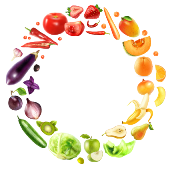



An apple is a type of fruit that grows on an apple tree (Malus domestica). The apple tree, which is grown all over the world, is the species of the genus Malus that is most widely cultivated. The original home of the tree, Central Asia, is still home to its wild parent, Malus sieversii. Since ancient times, apples have been grown throughout Asia and Europe, and European settlers brought them to North America. Apples have religious and mythological significance in many cultures, including Norse, Greek, and European Christian history.
Apples raised from seed frequently differ significantly from the types of their parents and frequently lack desired characteristics. Usually, rootstocks are used to clonally graft different apple types onto. Apple trees tend to grow larger and bear fruit much later without rootstocks. To control the size and rate of growth of the resulting tree and facilitate harvesting, rootstocks are utilised.
Over 7,500 different apple cultivars are known to exist. Numerous cultivars are created for a range of flavours and uses, including cooking, eating raw, and creating cider. Both organic and non-organic methods can be used to control a number of fungal, bacterial, and insect problems that damage trees and fruit. In order to do research on disease prevention and selective breeding for apple production, the fruit's genome was sequenced in 2010.
China generated the majority of the world's 86 million tonnes of apples that were produced in 2018.
The apple (Malus sp., Rosaceae), which is cultivated as a fruit tree all over the world, is the most well-known species of the genus Malus. Malus sieversii, the wild ancestor of the apple tree, is still widespread in Central Asia, where it first emerged. Since ancient times, apples have been grown throughout Asia and Europe, and European colonists brought them to North America.
Apples are popular because there are many ways to eat them, as well as because they are useful and durable. Apples can be processed into sauce, slices, or juice and are widely used in pastries, cakes, tarts, and pies.
A typical serving of apples contains 126 calories, 242 grammes of weight, and only a small quantity of dietary fibre. Otherwise, the amount of essential nutrients is usually very little.
Apple skin, core, and pulp are rich sources of several phytochemicals, including flavonoids (such quercetin, flavanols, and catechins) and other phenolic compounds (including epicatechin and procyanidins).
Phenolic compounds like polyphenol oxidase are the primary catalyst for apple browning. Polyphenol oxidase catalyses the reaction between phenolic compounds and o-quinones, which causes the pigment to darken and eventually turn brown.
Ideain (cyanidin 3-O-galactoside), a kind of anthocyanin, is present in several red apple cultivars.
One's mental health may benefit from a fruit-rich diet, such as one that includes apples. Eating fruits and vegetables may be beneficial for one's mental health, claims Trusted Source. Eating at least five pieces of fruit and vegetables daily is recommended by experts in order to get the benefits.
Apples contain a variety of nutrients that may lower the risk of stroke. For instance, a 2017 scientific analysis by Trusted Source found that those who consume the most fibre may be at a lower risk of a cardiovascular condition coronary artery disease and stroke.
A reputable source claims that eating two raw apples every day for eight weeks caused healthy people's cholesterol levels to decrease. However, the outcome was not the same with clear apple juice.
Apples offer fibre, vitamin C, and antioxidants. An apple of typical size provides a trustworthy source that states:
Fibre appears to make blood pressure control easier, which may reduce the risk of cardiovascular disease.
Vitamin C is an antioxidant that, along with other antioxidants, may help protect certain aspects of heart health.
Apples are rich in pectin, a soluble dietary fibre that may help with digestion. We regularly peel apples, but research has shown that altogether, pectin content in apples is only approximately 1.79 percent, with the majority of it concentrated in the peels (more than in apple pulp). In regard to inflammatory bowel disease, apples may have positive benefits with additional support from the gut bacteria. Apples are strong nutritional supplements that may help manage ulcer-related damage to the colon, a portion of the large intestine, and reduce the stomach adverse effects of aspirin.
Apples should be stored and used in the crisper drawer.
To keep the apples fresh, they should be wrapped in a moist paper towel or placed in a plastic bag with holes. Keep apples apart from other produce because the ethylene gas that apples release will accelerate the ripening of other fruits and vegetables.
Utilising Apple?
The entire fruit, minus the seeds, is edible. Apples are eaten in many different forms, such as as raw fruit, in fermented juices and ciders, in wine, vinegar, jams and jellies, compotes, tea, and applejack, as well as when they are used in recipes together with sugar and other sweeteners.
Delicious cakes, apple pies, nectars, sauces, and other sweets are produced by Apple.
Apple peel can be used as a stabilising, emulsifying, thickening, and gelling ingredient in food.
Colorful pigments are extracted from apple peels and then utilised as food colouring.
-
Facts: Studies have shown that bioactive compounds in apples may have properties that could be beneficial to health.
A medium apple contains roughly 95 calories, 0 grammes of fat, 1 gramme of protein, 25 grammes of carbohydrates, 19 grammes of naturally occurring sugar, and 3 grammes of fibre per serving.